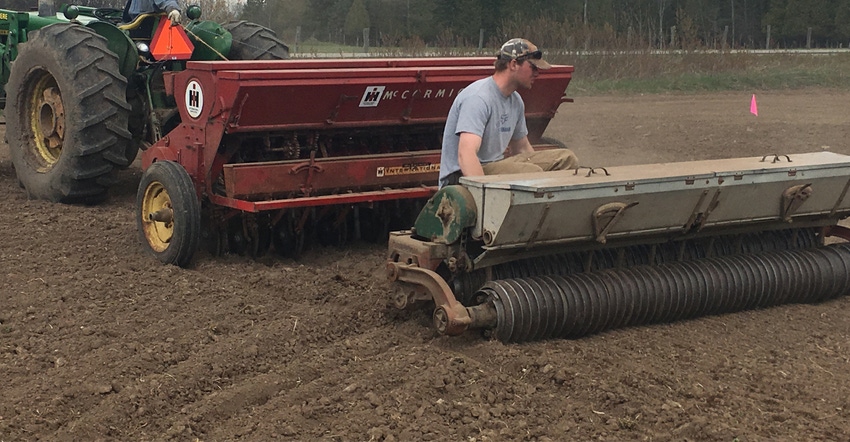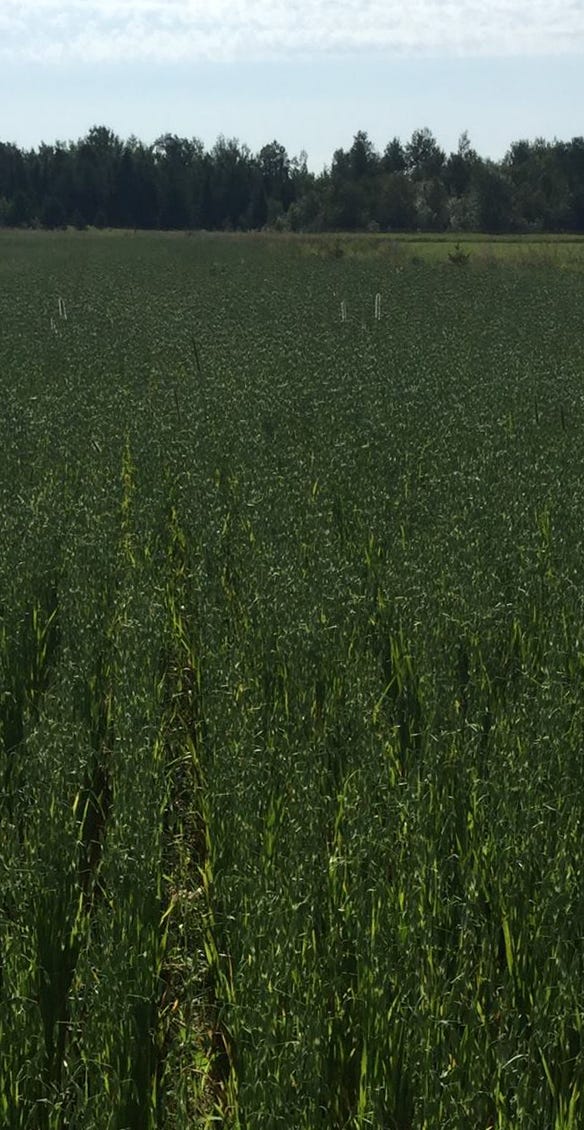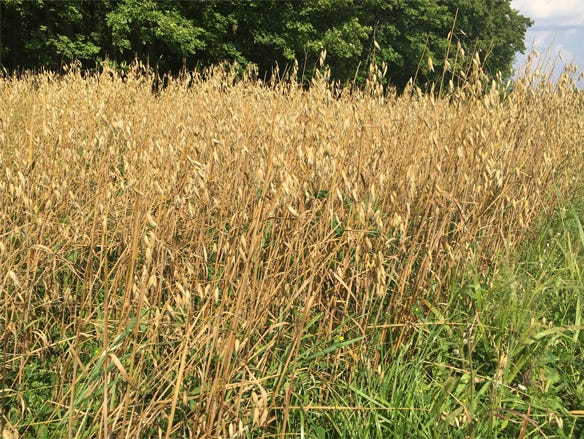January 15, 2018

By Monica Jean
In 2017, the Michigan State University Upper Peninsula Research and Extension Center in Chatham, along with MSU Extension, was awarded a grant through the Organic Farming Research Foundation to research organic grain systems in the region and to determine the market potential for farm adoption.
Two research projects were launched: examine oat production with various underseedings for weed control and forage establishment at the Guindon Farms in Cornell in field-scale plots, and examine grain variety and management trials at the MSU Upper Peninsula Research and Extension Center North Farm in small-scale plots. Both research trials were managed organically and were planted on certified organic land.
To improve weed management in organic production, MSU researchers investigated using related species of fescue to suppress annual weeds. The underseeding then provided a forage for the following season. The replicated plots were planted using the cooperators equipment, maintaining production scale. A hulless oat variety, Streaker, was chosen to investigate the feasibility of growing hulless oats in Northern climates. In the same field, a traditional variety, Deon, was grown with a mixed legume and grass underseeding. Treatments consisted of Streaker planted with an underseeding of timothy, alfalfa and a fescue (Swaj, Minto or Perun).

MIDSEASON: This photo was taken around mid-July of the hulless oat variety, Streaker.

Hulless oats yielded poorly regardless of the fescue variety used, averaging 16 bushels per acre compared to the average Deon yield of 50.3 bushels per acre. Although weed management was achieved, none of the fescue varieties performed better. It was observed that a greater population of alfalfa resulted in a decrease in weed population.

HARVEST APPROACHING: This picture was taken mid-August of Streaker, with an underseeding made up of alfalfa, timothy and related species of fescue. The harvest was completed Aug. 24.
With respect to stalk strength and kernel retention, the Streaker variety performed poorly in the 2017 growing season. Vegetation yields of the legume and grass underseedings will be taken in spring.
The team looks forward to additional work so that recommendations can be developed to assist in the expansion of organic grain production in the Upper Peninsula to support the local organic meat industry.
If you are interested in organic research in the Upper Peninsula, contact Ashley McFarland at 906-439-5176 or [email protected]. McFarland is the coordinator of the MSU Upper Peninsula Research and Extension Center in Chatham.
Jean is a Michigan State University Extension educator.
You May Also Like




